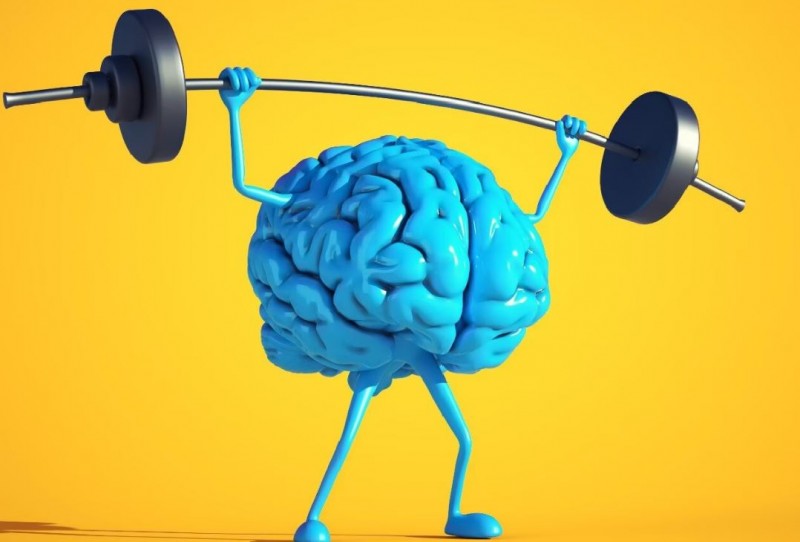
Maintaining physical health through exercise and workouts is a common practice for everyone. However, it is equally important to pay attention to mental health alongside physical health. As one ages, memory tends to weaken, but starting certain exercises on time can help enhance memory power and keep the brain healthy. Let's explore some exercises that aid in keeping the brain healthy and sharp:
1. Practice Meditation:
Meditation is a practice that involves training the mind to focus and redirect thoughts. It has been practiced for centuries and is known for its various mental health benefits. Meditation helps in reducing stress, anxiety, and depression by promoting relaxation and improving emotional well-being.
When you meditate, you engage in techniques such as mindfulness, deep breathing, or guided imagery to achieve a heightened state of awareness and inner peace. Regular meditation sessions can have a positive impact on your brain's neural pathways. Studies have shown that meditation can increase gray matter in the brain, which is associated with improved memory, learning, and emotional regulation.
One of the key benefits of meditation is its ability to enhance concentration and focus. By training the mind to remain present and attentive, meditation strengthens neural connections that support cognitive functions. This, in turn, improves your ability to concentrate on tasks, absorb information, and retain knowledge.
Moreover, meditation cultivates mental flexibility by encouraging non-judgmental awareness of thoughts and feelings. Instead of reacting impulsively to stimuli, meditators develop the capacity to observe their thoughts without attachment, leading to greater emotional resilience and adaptability.
2. Utilize Non-Dominant Hand:
The brain is divided into two hemispheres, each controlling the opposite side of the body. Most people have a dominant hand, which they use for the majority of tasks. However, consciously using the non-dominant hand can stimulate the brain and promote neural plasticity.
When you use your non-dominant hand for daily activities such as brushing your teeth, eating, or writing, you activate regions of the brain that are less frequently engaged. This challenges the brain to establish new neural connections and strengthens existing ones, leading to improved coordination and cognitive function.
Furthermore, incorporating tasks that require fine motor skills with the non-dominant hand can enhance creativity and problem-solving abilities. By breaking away from habitual patterns, you encourage the brain to approach tasks from different perspectives, fostering innovation and lateral thinking.
3. Try Board Games:
Board games have been enjoyed for centuries as a form of entertainment, but they also offer numerous cognitive benefits. Games like chess, Scrabble, and Sudoku require strategic thinking, pattern recognition, and decision-making skills, making them excellent exercises for the brain.
Chess, in particular, is renowned for its ability to enhance cognitive function. The game requires players to anticipate their opponent's moves, plan ahead, and adapt to changing circumstances, all of which stimulate neural activity and promote mental agility.
Similarly, word games like Scrabble challenge the brain's language processing abilities and vocabulary recall. By forming words from a set of letters, players exercise their linguistic skills and memory while engaging in a competitive and intellectually stimulating activity.
Sudoku, a number-placement puzzle, tests logical reasoning and problem-solving skills. By filling in the grid with numbers according to specific rules, players train their minds to analyze patterns, deduce solutions, and persist in the face of challenges.
4. Read Books:
Reading is often described as a workout for the brain, and for good reason. Whether you prefer fiction, non-fiction, or poetry, immersing yourself in a book stimulates various cognitive processes and expands your intellectual horizons.
When you read, your brain engages in complex cognitive activities such as comprehension, visualization, and critical thinking. By interpreting words, sentences, and narratives, you exercise your ability to extract meaning from text and make connections between ideas.
Moreover, reading exposes you to new information, perspectives, and experiences, enriching your understanding of the world and fostering empathy and compassion. Whether you're delving into a historical novel, exploring scientific discoveries, or pondering philosophical concepts, reading broadens your mental horizons and stimulates curiosity.
In addition to cognitive benefits, reading has been linked to improved emotional well-being. Immersing yourself in a captivating story or absorbing insights from a self-help book can provide solace, inspiration, and perspective, reducing stress and enhancing overall mental health.
5. Keep Learning New Skills:
The human brain is remarkably adaptable, capable of learning and acquiring new skills throughout life. By challenging yourself to learn new things, you not only expand your knowledge and abilities but also stimulate neuroplasticity—the brain's ability to reorganize and form new neural connections.
Learning a new skill, whether it's playing a musical instrument, mastering a new language, or acquiring proficiency in a sport, engages multiple cognitive processes, including attention, memory, and problem-solving. Each time you practice and refine your skills, you strengthen the neural circuits associated with that particular activity.
Furthermore, learning new skills has been shown to have a protective effect against cognitive decline and age-related neurodegenerative diseases such as dementia and Alzheimer's. By maintaining an active and engaged lifestyle, you can preserve cognitive function and promote brain health well into old age.
In conclusion, incorporating these exercises into your daily routine can help keep your brain healthy, agile, and sharp. Whether it's through meditation, using your non-dominant hand, playing board games, reading books, or learning new skills, nurturing your mental well-being is essential for overall vitality and quality of life.
Health With Yoga: 5 Yoga Poses to Alleviate Stress and Promote Well-being
The seasoning of red chilli may be heavy, know what will be the harm of eating too much